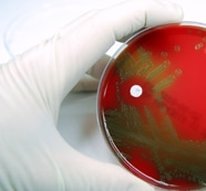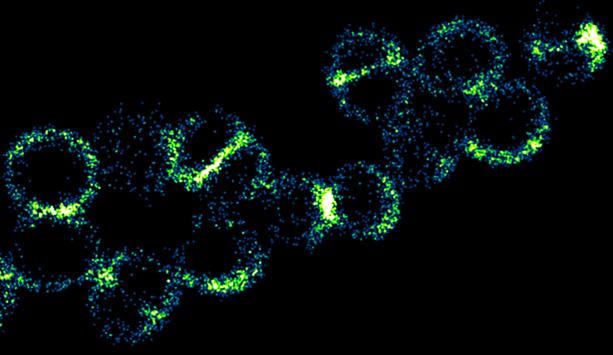Our ResearchThe Florey Institute is addressing one of the world’s biggest biomedical challenges – infectious disease. Set within the context of emerging antibiotic resistance, we study the complex interaction between pathogens and their host. By working together with our collaborative partners, we are ‘bridging the gap’ between science and patient care to tackle this global threat to human healthcare.
Inspired by the work of Nobel Prize winner Sir Howard Florey, we’re striving to save lives by understanding how infectious agents interact with our own immune systems. Howard Florey was a former Chair of Pathology at the University of Sheffield. He went on to carry out the first clinical trials for penicillin – a drug which has saved millions of lives worldwide. |
Our Research
|
Host-pathogen interactions
|
|
Microbes (such as bacteria) are essential to the maintenance of human health. Even bacteria that are considered ‘pathogenic’ can form part of the normal microbiome – for example 30% of the population harbour Staphylococcus aureus in their nasal cavities without succumbing to disease.
In order to cause disease, pathogenic bacteria must overcome host defences. We study the complex interplay between pathogenic bacteria and host – both the mechanisms that bacteria use to cause disease, and how our immune systems can mount a highly regulated response to fight back. With an increased understanding of the role of host-pathogen interactions in pathogenesis, we can better inform the development of therapeutic strategies. The Florey Institute builds on many years’ experience of Staphylococcus aureus and Streptococcus pneumoniae research in Sheffield. Our scope today encompasses other Gram positive bacterial pathogens, and beyond, allowing parallels and common mechanisms of pathogenesis to be investigated and exploited in the fight against AMR. |
Staphylococcus aureus is a huge cause of community and hospital-acquired infections. Blood stream infections due to this organism cause approximately 30,000 infections each year. A significant proportion of these are due to methicillin resistant S. aureus (MRSA). These infections have high associated mortality and cost health services tens of millions of pounds annually. |
New approaches to tackle AMR
|
|
Antibiotics target essential processes that underpin pathogen growth and replication. We study how antibiotics selectively eradicate bacteria, as well as the strategies bacteria have evolved to resist these drugs. This knowledge will help us improve our understanding of the molecular basis of resistance and help us find new ways to combat its inexorable spread.
|
The Florey Institute has close links with Imagine: Imaging Life, a revolutionary biological imaging project at the University of Sheffield. Imagine aims to answer fundamental questions in biology and healthcare by harnessing and combing three advanced imaging techniques – super-resolution optical microscopy, electron microscopy and atomic force microscopy. These super-resolution imaging techniques will help us better understand the disease process by elucidating the structure of pathogenic bacteria. |
STORM image of S. aureus.
|

